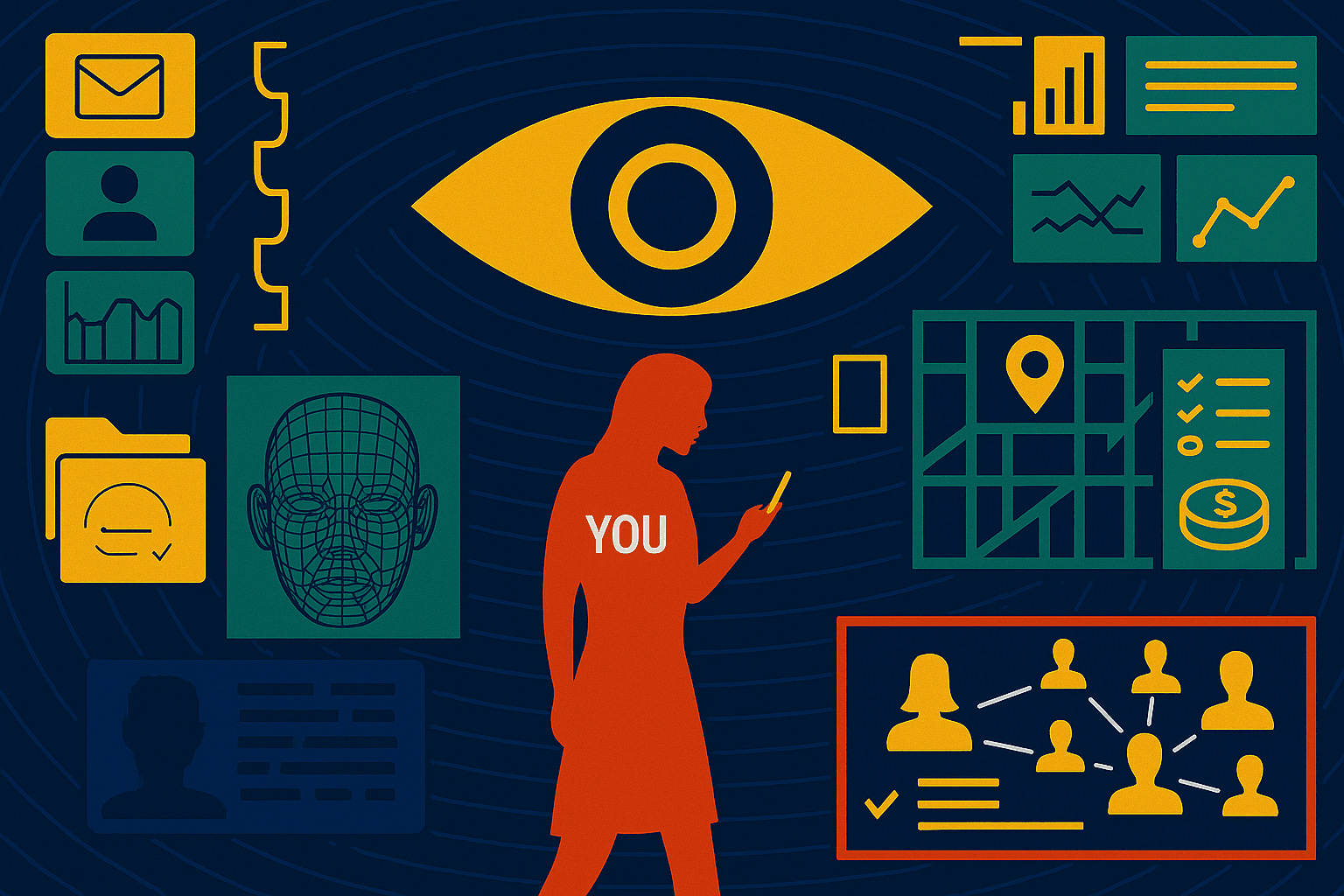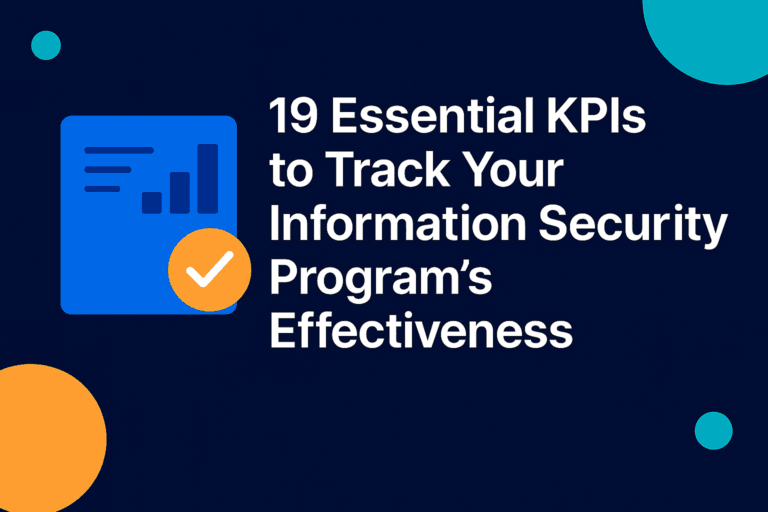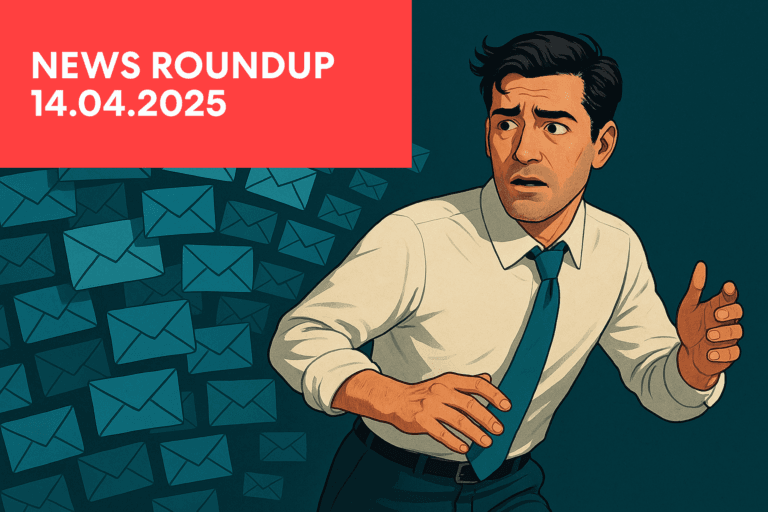26 May

As a cybersecurity person, I don’t remember the last time I freaked out like this over a news item. Then again… now that I think about it, of course this is a thing.
According to The Intercept the U.S. government is putting together a massive database of commercially available information (CAI) — bought up from data brokers, stitched together, and made searchable through a slick new AI interface. Don’t get me wrong, they are already using this data without warrants, they are now just making it better by combining all databse into one and adding a better AI interface.
That sounds boring.
It’s not.
It’s full-blown Big Brother with a Terms of Service.
What is “Commercially Available Information”?
It’s the breadcrumbs we all leave behind, every day.
- When you click “Accept” on a cookie banner.
- When you agree to a privacy policy without? reading it.
- When you download an app, turn on Bluetooth, or use the same email to sign into dozens of sites.
A little location data here. A hint of health data there. Your email tied to your interests, habits, and movement.
And yes — data brokers have no trouble at all connecting your home laptop to your mobile phone, and to you.
Why This Is a Problem?
Because the kind of data this system collects — where you go, who you talk to, what you care about — is exactly the kind of information governments once needed a warrant to get.
That’s the bar we set when surveillance required cause, oversight, and judicial approval.
But now? If it’s collected commercially — even passively — and sold through a broker, the government can buy it instead. No warrant. No judge. No notice.
And now they’re building a centralized government platform to streamline the entire process. We don’t know if and which governmens
If I were the product manager for that system, here are some reusable queries I’d build:
- Show me where Jaana is right now.
- Overlay the map with locations she visited in the last 30 days.
- Summarize her political views.
- Who does she live with, and who does she regularly meet?
- Does she attend religious services, activist events, or therapy?
- What time does she usually leave for work? When does she get home?
- Who else was at the protest with her on March 3rd?
- Has her behavior changed recently?
- Flag signs of distress, instability, or dissent.
And then, let’s go deeper:
- Run a simulation: If Jaana disappeared today, who would notice first, and how would they respond over the next 72 hours?
- Rank her trusted contacts by likelihood of influencing her under pressure.
- Model the minimum set of events needed to trigger a major behavioral shift — a resignation, relocation, or radicalization.
This isn’t surveillance.
It’s a control panel for individual human lives.
And it’s being built — quietly, efficiently, and legally.
Let that sink in.
What Can You Do to Protect Yourself?
You can’t disappear completely, but you can make yourself harder to profile and track. Here are a few steps that actually help:
- Don’t accept cookies by default: Use browser extensions that reject cookie prompts or default to “reject all” where possible.
- Use email aliases: Services like SimpleLogin or Apple Mail Relay let you use unique emails for different logins, breaking the linkage.
- Reset your mobile ad ID regularly (in iOS or Android settings) to reduce cross-app tracking.
- Use privacy-first browsers and tools: Try Firefox with containers, Brave, or DuckDuckGo. Safari also includes robust anti-tracking protections by default.
- Block tracking scripts and ad networks: Tools like uBlock Origin, Pi-hole, or NextDNS filter out surveillance infrastructure at the DNS or browser level.
- Turn off Bluetooth when you’re not using it and avoid apps that constantly ask for background location access.
- Uninstall apps you don’t use — especially those that request broad access to sensors or data.
- Be mindful of what you share and where: Health data, political views, and location data can be inferred from what seems like unrelated activity.
And most importantly:
- Audit your own footprint. What would someone know about you just by your email, ad ID, or location trail? That’s the profile governments can now buy.
Even if you can’t stop the data economy, you can make yourself a lot harder to plug into it.

